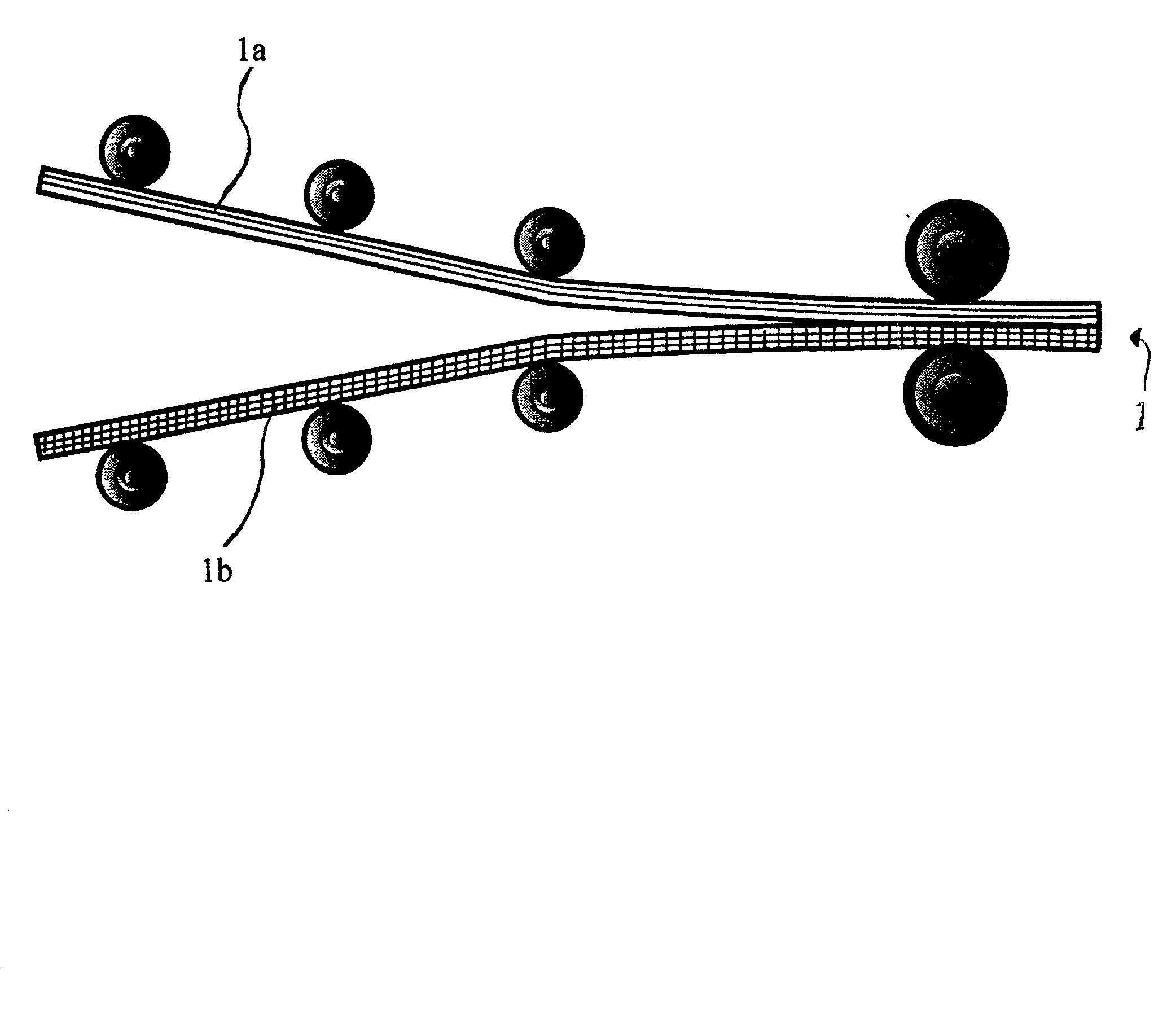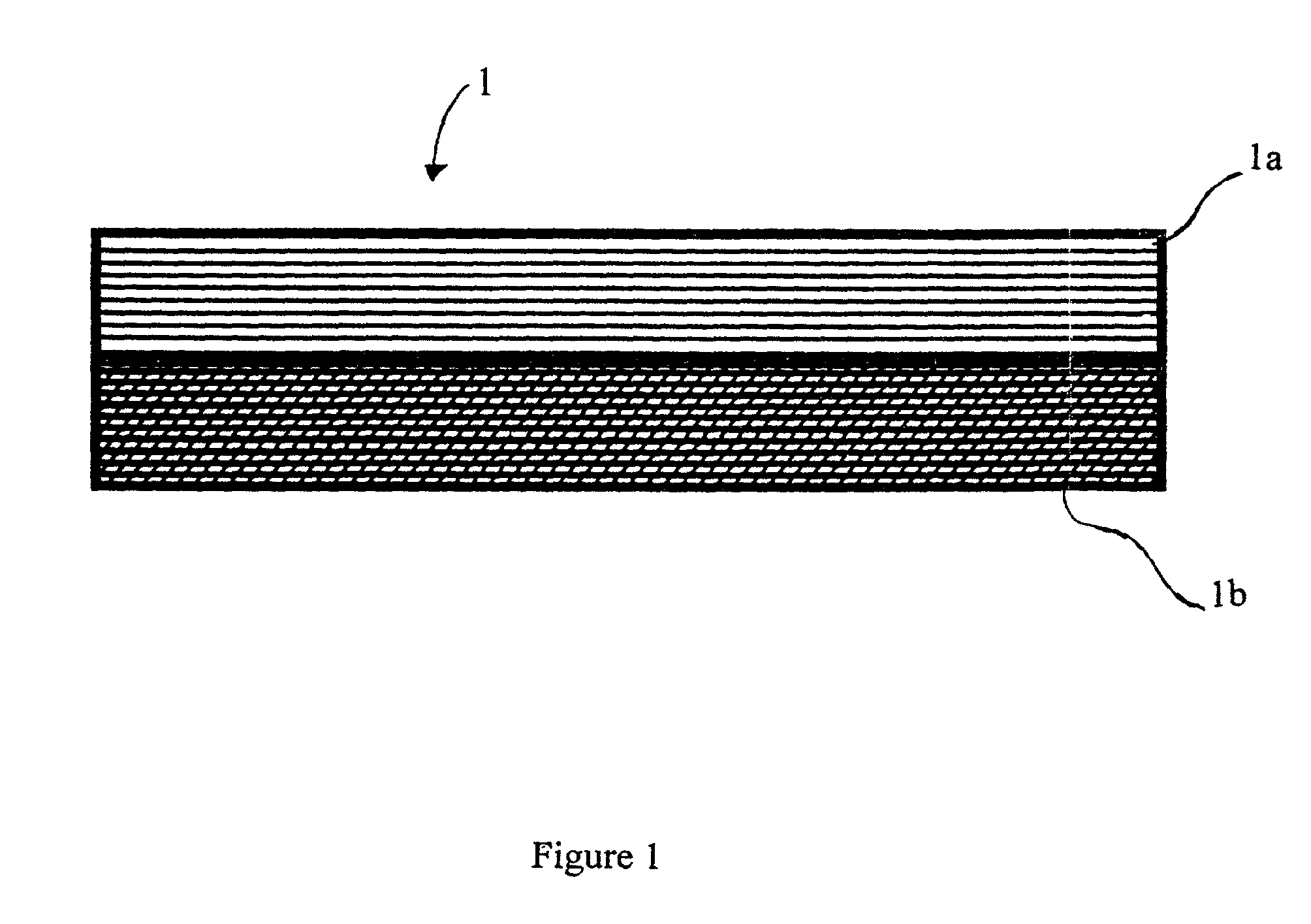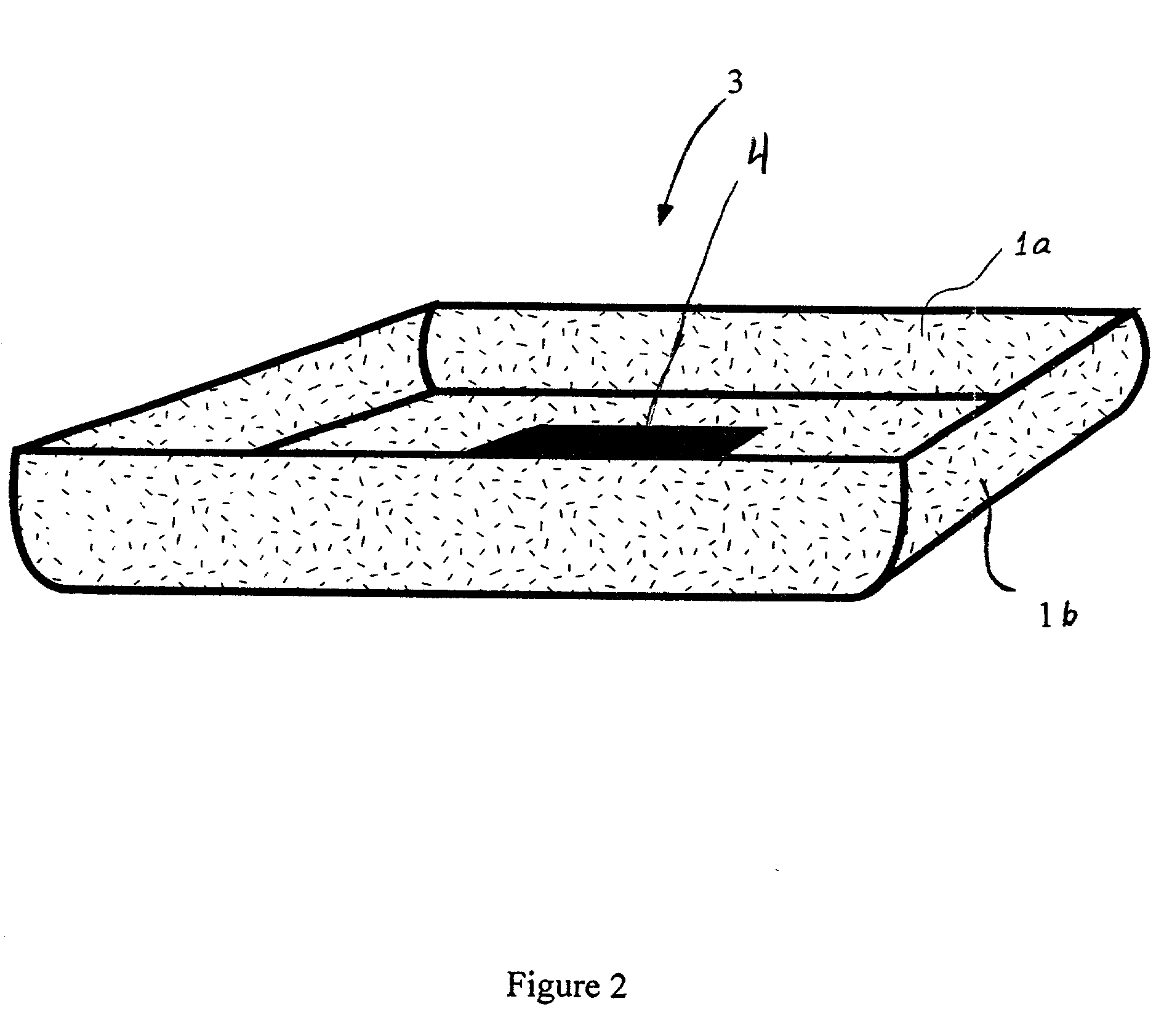Multilayered polymeric structure
a polymer and polymer technology, applied in the field of multi-layered polymer structure, can solve the problems of static charge affecting the quality of signals carried in cables, the component is not protected from electric charge originating outside of the tray or package, and the current flow through the component far exceeding its current carrying capacity
- Summary
- Abstract
- Description
- Claims
- Application Information
AI Technical Summary
Benefits of technology
Problems solved by technology
Method used
Image
Examples
examples 1-9
[0053] Masterbatch compositions containing 15% fibril loading were prepared according to methods described in the examples section of U.S. Pat. No. 5,651,922 to Nahass et al. incorporated herein by reference. Masterbatch formulations were prepared having 15% by weight carbon fibrils obtained from bird's nest (BN) aggregates and 85% polyethylene terephtalate modified with cylcohexanedimethanol (PETG). Other masterbatch compositions included 15% by weight carbon fibrils from bird's nest type aggregates and 85% polybutylene terephtalate (PBT). Yet other masterbatch composition were prepared to include 15% by weight carbon fibrils from bird's nest type aggregates and 0.5% by weight polytetrafluoroethylene (PTFE) and the balance PETG.
[0054] The above masterbatch compositions were used to make other formulations as listed in Table 1 below. For example, to make a PETG / SBN product 33.5% PBT / 15BN was mixed with 66.7% PETG polymer. PBT and PETG trans-esterify to form a hybrid mixture of two p...
PUM
| Property | Measurement | Unit |
|---|---|---|
| diameter | aaaaa | aaaaa |
| aspect ratios | aaaaa | aaaaa |
| aspect ratios | aaaaa | aaaaa |
Abstract
Description
Claims
Application Information
 Login to View More
Login to View More - R&D
- Intellectual Property
- Life Sciences
- Materials
- Tech Scout
- Unparalleled Data Quality
- Higher Quality Content
- 60% Fewer Hallucinations
Browse by: Latest US Patents, China's latest patents, Technical Efficacy Thesaurus, Application Domain, Technology Topic, Popular Technical Reports.
© 2025 PatSnap. All rights reserved.Legal|Privacy policy|Modern Slavery Act Transparency Statement|Sitemap|About US| Contact US: help@patsnap.com



